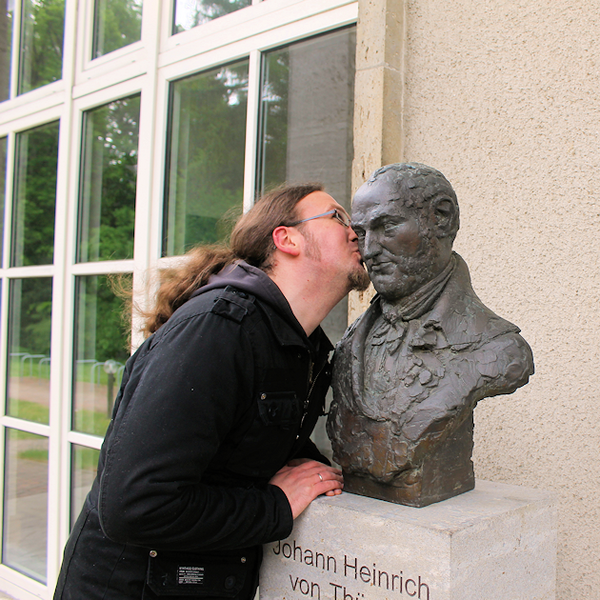
Marco Gronwald has completed his doctoral thesis within three years and successfully defended it at the University of Hanover on 05/11/2016. His work on the influence of biochar on the carbon and nutrient dynamics in agricultural soils was part of the project "Biochar in agriculture". Furthermore, the dissertation was funded by the German Research Foundation (DFG-Research Training Group 1397 “Regulation of soil organic matter and nutrient turnover in organic agriculture”).
The leaching of nutrients from agricultural soil and further ammonia emissions from agricultural systems cause major problems in agriculture. The proportion of nitrogen losses from agriculture to the global emissions of ammonia is 50%. In addition, agricultural land use lead to loss of soil organic matter. In the study it was investigated whether the application of biochar in agricultural soils counteracts these processes and additionally store atmospheric carbon.
The essential parts of the work were:
- The nutrient retention potential of nine different char-soil mixtures was investigated in a sorption experiment. Although, biochars had the potential to reduce the nutrient leaching (especially ammonium nitrate) but this depends strongly on the char-type. It was also found that the biochars lost 60-80% of their retention potential after 7-month aging under field conditions [http://www.soil-journal.net/1/475/2015/soil-1-475-2015.pdf].
- The possibility of pyrochar or hydrochar addition to reduce ammonia emissions from cattle manure and poultry litter was investigated in a further experiment. The addition of pyrochar increased ammonia emissions slightly by its alkaline pH. In contrast, the hydrochar decreased the emissions by their acidic pH. However, the effect of biochar addition was low compared to a simple acidification of the manures.
- Finally, it was examined how stable both char-types are against natural degradation under field conditions. It was found that especially pyrochar may use as a long-term storage medium. The calculated mean residence time for hydrochar was 3-14 years and for pyrochar 16-224 years. Both char-types differ mainly in stability and aromaticity due to its specific production process.

![[Translate to English:] [Translate to English:]](/media/_processed_/6/4/csm_titel_CO2Kampagne8_afeea2273e.png)
![[Translate to English:] [Translate to English:]](/media/_processed_/4/1/csm_titel_93px_CO2Kampagne8_9b0f3354d4.png)



